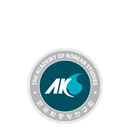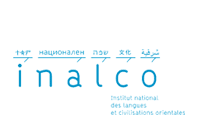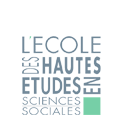7th Annual International ADI Conference
Asian Dynamics Initiative, University of Copenhagen
24-26 June 2015
Confirmed Keynote Speakers:
- Professor Paul Freedman, History, Yale University
- Professor Michael Herzfeld, Anthropology, Harvard University
- Dr. Madhusree Mukerjee
- Professor Daojiong Zha, International Political Economy, Peking University
Call for panels
Food, feeding and eating activities are as old as life itself, but recently there has been a heightened interest in such issues within policy-making, international relations, and academic scholarship ranging from the bio-medical, philosophical, historical, and political to the social, cultural, economic, and religious. Food is both global and local: while foods, cuisines, recipes, people, and culinary cosmopolitanisms have been in global circuits of flows and circulations through various periods of history, the smells, sights, sounds, textures, and tastes of local foodscapes may evoke memories of ‘home’ and imaginations of travel alike. Moreover, with increasing numbers of people concentrated in large cities and urban agglomerations, the challenges of feeding people are becoming ever more complex. Against the backdrop of globalisation of Asia and Asian foods, this conference focuses on the wide-ranging aspects of production, consumption, distribution, disposal, and circulation of foods in and out of Asia.
Food security and securitization, demand and supply chains, global agribusinesses, industrially farmed and processed foods, branding and patenting of seeds, food crops as biofuels, genetically modified foods, and concerns with consumer trust, food safety, food anxieties, scares (e.g. the 2005 formaldehyde scare in Indonesia) and scandals (e.g. the contaminated baby milk scandal in China in 2008) have figured prominently in various international, national, and local debates. Questions have been raised about whether there is ‘enough’ food to feed the world now and in the future, with issues of food availability, access, ‘right to food’ (e.g. the Right to Food Campaign in India which began in 2001 and the Food Security Act 2013 which makes the right to food legal and justiciable), and sustainability being brought to the forefront.
The need to address food poverty and inequalities, hunger and malnutrition (under-nutrition, micronutrient deficiency, and over-nutrition) has been highlighted by the rapid rise in non-communicable diseases such as anaemia, obesity, and various food intolerances (e.g. to High Fructose Corn Syrup added to innumerable industrially produced foods) and communicable diseases such as various respiratory infections. Public health interventions, public food assistance, distribution and feeding programmes (e.g. the Midday Meal Scheme in schools in India, the world’s largest feeding programme of its kind), and food aid policies have been formulated to attempt to address these issues with varying degrees of success and failure. Moreover, as urbanised populations become ever more removed from the origins of the food they consume, potential contamination, adulteration, and decay threaten the quality and safety of food on a daily basis, with governments seeking to ameliorate these threats through regulations and control practices.
Different forms of food inequality, insecurity, and conflict also draw further attention to the interconnectedness of food and eating with other domains. Historical attention to production, consumption, and distribution practices reveals the circulation of foods such as sugar, spices, and tea through empire-building, capitalist labour and land exploitation, and global trade networks. Anthropological, sociological, gender, and religious studies have drawn attention to the significance of food in negotiating distinctions of class, caste, ethnicity, race, religious, gender or kinship groups, forms of identity and belonging whether in rural or urban formations at ‘home’ or ‘abroad’, the role of food in political processes (e.g. gastro-nationalism, gastro-diplomacy, food as ‘intangible heritage’, culinary colonialism), the socio-religious, political and ethical dimensions of eating and abstinence, feasting and fasting, and diverse food norms, prohibitions, and health ‘traditions’. The prominence of food and its sensory dimensions, eating and feeding in the fabric of life in Asia has also been reflected in the visual arts, literature, poetry and music – one only has to think of the Japanese film Tampopo, the poignant sketches of the Bengal Famine of 1943-44 by the Bangladeshi painter Zainul Abedin, Nicole Mones’s novel The Last Chinese Chef, Anita Desai’s novel Fasting, Feasting, and Monique Truong’s The Book of Salt.
We invite panels and papers from those working in a range of relevant fields from food history, economics, anthropology, and political science to social policy, literary studies, and bio-medical and health sciences to explore such issues and beyond. We elicit fresh engagements and exciting interdisciplinary discussions that could address topics such as (but are not limited to):
- the ways in which through different periods in history foods – such as spices valued for their culinary, medicinal, and cosmetic properties – have travelled in and out of Asia, have been incorporated into ‘national cuisines’ and ‘authentic’ recipes, and have fuelled the engines of trade, commerce, and colonial expansion;
- the shifts towards ‘sustainable diets’ and how these can re-configure land use and supply chains to deliver ‘sustainable food security’; the tensions between more ‘localised’ food systems, ‘alternative food networks’ and more ‘global’ ‘technologically’ grounded approaches to food security;
- how different forms of food provisioning, approaches to ‘food security’ and ‘food sovereignty’, and modes of food governance raise questions about civil society, states, and political legitimacy;
- how sacrificing, sharing, and consuming food forge bonds between the living and the dead or establish and strengthen economic and political relationships between elites and non-elites alike;
- the cultural politics of transactions in taste and the ways in which food practices are used as strategic markers of identity and inclusion/exclusion in ‘multicultural’ societies e.g. ‘vegetarian only’ housing complexes, prohibitions on cooking certain foods in public spaces, consumption of prohibited foods as subversive practice, or the significance of diasporic foods;
- how and why artisanal foods, celebrity chefs and ‘ethnic’ restaurants, ‘organic’ and ‘fair-trade’ foods, different modalities of producing and selling food (e.g. food cooperatives), food and environmental activism, ‘vegetarianism’ and discourses of the ‘ethical consumer’, ‘traditional’ medicines and health practices have become new sources of cultural, economic, religious and political values;
- how urbanised eating is entangled in increasing concerns with a lack of trust, with food safety, regulation and ‘quality’, the ways in which shifting definitions of ‘healthy’ and ‘risky’ foods, and the politics of feeding and nurturing contribute to the emergence of various nutritional policies and practices, definitions and economics of ‘healthy publics’, and food ‘scarcity’ and ‘waste’;
- the role of different media – the press, films, literature, the visual arts and poetry – in the emergence of various understandings of a ‘proper meal’, family, domesticity and hospitality, of forms of personhood, agency, affect and emotions.
Through such discussions and conversations we look forward to exploring and re-visiting together what might be conceived of as ‘eating’ and ‘not-eating’ ‘foods’ and ‘non-foods’.
Call for panels:
We invite submissions of panel proposals including:
- Convenor’s name and affiliation
- Panel title and abstract (250 words)
- Names of 2-3 potential participants and provisional paper titles
Panel submission deadline: 15 December 2014
Please send your panel proposal to marie.yoshida@nias.ku.dk
Notification of acceptance: mid-January 2015
A call for papers will be announced in January once the panels have been selected.









